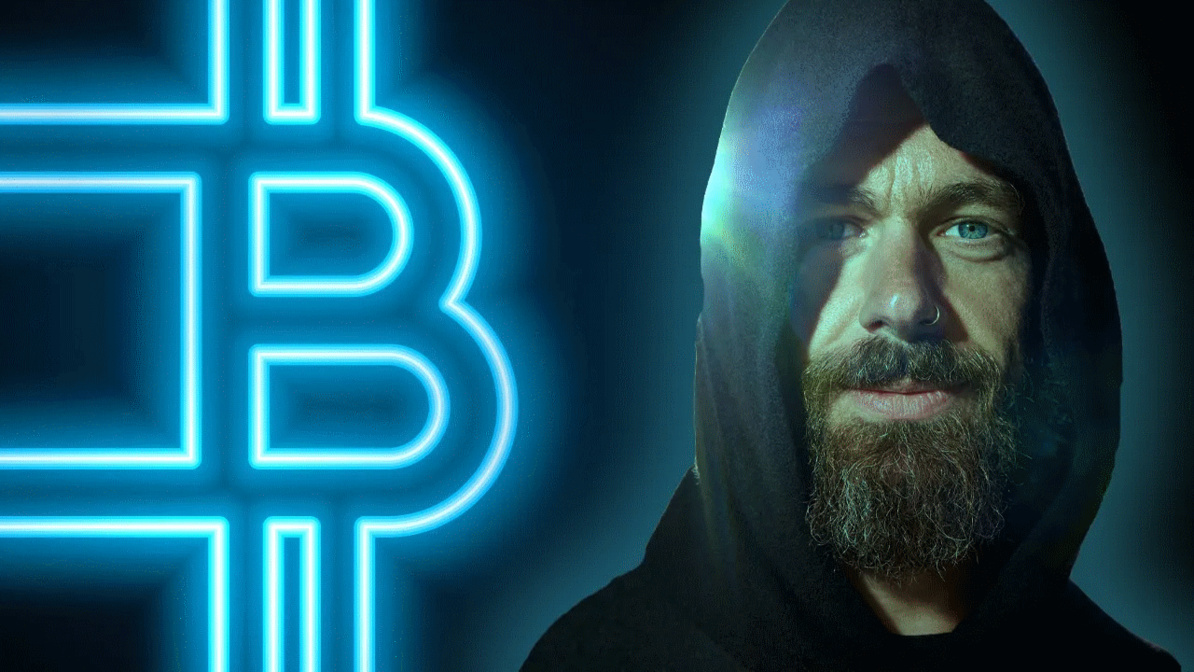IMAGE SOURCE
Jack Dorsey, CEO of Block (formerly Square), has been a consistent advocate of bitcoin. Dorsey both personally and professionally has supported bitcoin for years. In 2018, he said that bitcoin will eventually become the world’s single currency. In 2020, Square purchased about $50 million worth of bitcoin. In early 2021, Square bought another $170 million worth of bitcoin. At the Bitcoin 2021 Conference in June, Dorsey explained that he sees bitcoin as a way to protect against currency devaluation and expedite transfers of funds across borders. Late last year, Square changed its name to Block, to denote a broader mission that includes blockchain and economic empowerment. With Block’s bitcoin holdings at 8,207 BTC, worth $354 million at current prices, Block hasn’t changed its tune on bitcoin. Last week Dorsey officially announced that Block would get into Bitcoin mining to make it easier for people to mine bitcoin. The announcement was made on Twitter and confirms information that dates back to October that the company would eventually enter the mining business. Block aims to create an “open bitcoin mining system” which is easily available, reliable, performant, power-efficient, and can be used by anyone.
When bitcoin was launched in 2009, many were not sure how it would play out. However, the world’s first cryptocurrency gained rapid success and cemented its dominance as the market leader, far ahead of its competition. In December, bitcoin passed another milestone. Ninety percent of all bitcoins set to ever enter the supply have now been mined. While it took 12 years to mine the first 90 percent of bitcoin’s total supply, the remaining 10 percent will take 120 years to mine. The 21 millionth bitcoin will not be mined before 2140.
Bitcoin gets into a lot of hot water because of its energy consumption and electricity is the largest cost involved with mining operations. A Bloomberg report estimated that in 2021 bitcoin would use 91TWh of energy, as much as Pakistan. Awareness of bitcoin’s “energy problem” was heightened when Elon Musk said Tesla was suspending bitcoin payments over concerns about the rapidly increasing use of fossil fuels for bitcoin mining and transactions. While most media outlets portray a negative picture of bitcoin’s energy consumption and it’s true bitcoin mining consumers more electricity than many cities and countries, we shouldn’t forget that 74% of bitcoin mining is powered by renewable energy and bitcoin mining is greener than most other systems out there.
Most people haven’t been able to mine bitcoin for years. Mining is a difficult proposition for individual miners and today it’s concentrated in the hands of few. Companies and even governments now invest millions to create server farms where they mine bitcoin. NBER researchers found that the top 10% of miners control 90% of the bitcoin mining capacity, and just 0.1% (about 50 miners) control 50% of the mining capacity. Such a high concentration could make the bitcoin network vulnerable to a 51% attack, where a colluding set of miners or one miner is able to take control of a majority of the network.
The mining process is complicated and requires a massive amount of dedicated hardware, trying to solve a computationally difficult puzzle and verify a block of transactions.
In the early days of bitcoin, miners would connect to mining pools to earn a more consistent paycheck. All of the miners worked together and when one member of the pool got lucky, the entire pool benefited. Eventually, weighted mining pools emerged, taking in all of the bitcoin earned by their miners and redistributing them based on mining power contributed. To prevent mining pool centralization, protocols like Stratum V2 are aiming to change the relationship between the miner and the mining pool. Instead of mining pools deciding what transactions go into blocks, miners decide which ones to include.
As bitcoin’s value skyrocketed in 2021, it’s become more challenging to mine without economies of scale and there are concerns that the network could become centralized, controlled by a handful of miners, just like the centralized web services we use today that hold all of our data
Building an open bitcoin mining system to democratize what may “become the world’s single currency”, is critical for a decentralized and permissionless future.
When the internet was first designed, it was conceived to be a decentralized network where we were supposed to run our own servers and not just be a client of Google, Facebook, and others.
Dorsey wants to overhaul the mining process in order to tackle the overwhelming challenges that are holding bitcoin back. For bitcoin to remain a community rather than an oligarchy, the community must be able to participate in a meaningful way. Dorsey wants everyone to be able to easily run their own node, without having to rely on anyone else to verify transactions and find out the state of the blockchain.
That’s the ultimate key to decentralization and what we should be thinking about when it comes to web 3.0 and the metaverse.
Jack Dorsey, CEO of Block (formerly Square), has been a consistent advocate of bitcoin. Dorsey both personally and professionally has supported bitcoin for years. In 2018, he said that bitcoin will eventually become the world’s single currency. In 2020, Square purchased about $50 million worth of bitcoin. In early 2021, Square bought another $170 million worth of bitcoin. At the Bitcoin 2021 Conference in June, Dorsey explained that he sees bitcoin as a way to protect against currency devaluation and expedite transfers of funds across borders. Late last year, Square changed its name to Block, to denote a broader mission that includes blockchain and economic empowerment. With Block’s bitcoin holdings at 8,207 BTC, worth $354 million at current prices, Block hasn’t changed its tune on bitcoin. Last week Dorsey officially announced that Block would get into Bitcoin mining to make it easier for people to mine bitcoin. The announcement was made on Twitter and confirms information that dates back to October that the company would eventually enter the mining business. Block aims to create an “open bitcoin mining system” which is easily available, reliable, performant, power-efficient, and can be used by anyone.
When bitcoin was launched in 2009, many were not sure how it would play out. However, the world’s first cryptocurrency gained rapid success and cemented its dominance as the market leader, far ahead of its competition. In December, bitcoin passed another milestone. Ninety percent of all bitcoins set to ever enter the supply have now been mined. While it took 12 years to mine the first 90 percent of bitcoin’s total supply, the remaining 10 percent will take 120 years to mine. The 21 millionth bitcoin will not be mined before 2140.
Bitcoin gets into a lot of hot water because of its energy consumption and electricity is the largest cost involved with mining operations. A Bloomberg report estimated that in 2021 bitcoin would use 91TWh of energy, as much as Pakistan. Awareness of bitcoin’s “energy problem” was heightened when Elon Musk said Tesla was suspending bitcoin payments over concerns about the rapidly increasing use of fossil fuels for bitcoin mining and transactions. While most media outlets portray a negative picture of bitcoin’s energy consumption and it’s true bitcoin mining consumers more electricity than many cities and countries, we shouldn’t forget that 74% of bitcoin mining is powered by renewable energy and bitcoin mining is greener than most other systems out there.
Most people haven’t been able to mine bitcoin for years. Mining is a difficult proposition for individual miners and today it’s concentrated in the hands of few. Companies and even governments now invest millions to create server farms where they mine bitcoin. NBER researchers found that the top 10% of miners control 90% of the bitcoin mining capacity, and just 0.1% (about 50 miners) control 50% of the mining capacity. Such a high concentration could make the bitcoin network vulnerable to a 51% attack, where a colluding set of miners or one miner is able to take control of a majority of the network.
The mining process is complicated and requires a massive amount of dedicated hardware, trying to solve a computationally difficult puzzle and verify a block of transactions.
In the early days of bitcoin, miners would connect to mining pools to earn a more consistent paycheck. All of the miners worked together and when one member of the pool got lucky, the entire pool benefited. Eventually, weighted mining pools emerged, taking in all of the bitcoin earned by their miners and redistributing them based on mining power contributed. To prevent mining pool centralization, protocols like Stratum V2 are aiming to change the relationship between the miner and the mining pool. Instead of mining pools deciding what transactions go into blocks, miners decide which ones to include.
As bitcoin’s value skyrocketed in 2021, it’s become more challenging to mine without economies of scale and there are concerns that the network could become centralized, controlled by a handful of miners, just like the centralized web services we use today that hold all of our data
Building an open bitcoin mining system to democratize what may “become the world’s single currency”, is critical for a decentralized and permissionless future.
When the internet was first designed, it was conceived to be a decentralized network where we were supposed to run our own servers and not just be a client of Google, Facebook, and others.
Dorsey wants to overhaul the mining process in order to tackle the overwhelming challenges that are holding bitcoin back. For bitcoin to remain a community rather than an oligarchy, the community must be able to participate in a meaningful way. Dorsey wants everyone to be able to easily run their own node, without having to rely on anyone else to verify transactions and find out the state of the blockchain.
That’s the ultimate key to decentralization and what we should be thinking about when it comes to web 3.0 and the metaverse.

Ilias Louis Hatzis
Ilias Louis Hatzis is the Founder & CEO at Mercato Blockchain Corporation AG.
Ilias Louis Hatzis is the founder and CEO at Kryptonio wallet. Create your wallet in less than a minute, without seed phrases, private keys, passwords or documents. Keep your bitcoin and digital assets always secure and recoverable: https://kryptonio.com
I have no positions or commercial relationships with the companies or people mentioned. I am not receiving compensation for this post.
Ilias Louis Hatzis is the founder and CEO at Kryptonio wallet. Create your wallet in less than a minute, without seed phrases, private keys, passwords or documents. Keep your bitcoin and digital assets always secure and recoverable: https://kryptonio.com
I have no positions or commercial relationships with the companies or people mentioned. I am not receiving compensation for this post.
Autres articles
-
Nominations | Binance accroît ses effectifs en matière de conformité de 34 % dans le monde et révèle des recrutements clés
-
Rauva, fintech portugaise spécialisée dans l'aide à la gestion d'entreprise, remporte le concours européen "Mastercard for Fintechs"
-
Bitpanda élargit son offre et propose désormais plus de 500 cryptos
-
Wally, 1,7 million pour consolider son club-deal immobilier avec l'appui de 50 Partners
-
La prévente de Vantard explose alors que GOAT franchit la barre du milliard de dollars

















